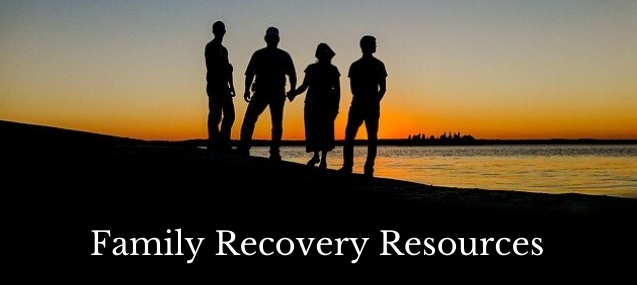The Family Program
Addiction is a family disease.
The family programs at Sanford Behavioral Health were created to include our patients' loved ones during treatment and beyond. Family involvement is one of the essential components of healthy long-term support and recovery. Because of this, we provide these programs at no charge to our patients' families.
Family members can be powerful allies in the recovery process. And while a person is in treatment, it is an excellent time to involve family members. During their loved one's care, family members may begin to recognize behaviors and habits that have developed while trying to cope with addiction in the family. Family members will also receive support in shifting their focus to areas of their lives that may have become neglected.
Sanford Behavioral Health has developed its family program by means of telehealth, to work with all family members. Our program gives family members the tools and resources they need to handle the inevitable bumps on the road to recovery. Don't hesitate to contact us at 616.202.3326 to learn more about our family program and addiction treatment programs.
You hear the success stories, and those are the ones that keep you going. The thing you need to remember about addiction treatment, is that if somebody gets well, it’s not just that person. It’s also their family getting well. And I believe it pays dividends for generations, because it creates an atmosphere within the family that is going to be passed on.
David Green, Founder and CEO Sanford Behavioral HealthFamily Counseling
Multiple studies have shown addiction treatments involving the family to be effective. In one study, those who had weekly family counseling were more likely to stay in treatment and less likely to relapse than those who did not have family counseling. Family counseling can help to improve communication and resolve conflict within the family. It can also help family members to understand addiction and its effects on the individual and the family.
The Family Program
Family members and loved ones are vital to our patient's recovery. Sanford Behavioral Health's family program invites friends and family members to come together in a virtual telehealth group. In this setting, you will learn more about addiction and recovery. Family education groups are for the people who will provide support to our patients during and after treatment. Compassionate support is crucial to the continued well-being of those in early recovery.
Addiction does not discriminate and affects the whole family, not just the individual. It is difficult for some family members to accept their loved one's changing behavior in early recovery. These people feel lost without a clear sense of responsibility. They wonder what their new role is and often feel unneeded. Many family members are not practicing self-compassion. And they may have developed negative physical, psychological, and social symptoms due to trying to adapt to the stressful living conditions when a loved one is actively using.
The family program provides a space where our patients' loved ones can ask questions, voice concerns, and obtain current information about the disease of addiction. We encourage all supportive loved ones to take advantage of this valuable resource. Once you have attended all four family education sessions, you will be invited to join our family support group.

The Family Education Program
The family education program has four specific sessions for the family and friends of our patients. This is a psychoeducational group to help family members more fully understand the disease of addiction. The education series also teaches practical ways to support loved ones through treatment and recovery. This group is a repeating cycle of four educational sessions that meet weekly on Tuesdays at 7:00 PM (EST).
- Session one - How addiction becomes a family disease
- Session two – Learning about the addictive disease process
- Session three – Understanding post-acute withdrawal syndrome (PAWS) and dynamics of early recovery
- Session four – Communication for the recovering family
Family members of Sanford Behavioral Health patients in any of our programs are welcome. A master's level clinician facilitates the group, and it is open to all supporting friends and family. We define "family" as parents, spouses, siblings, adult children (and accompanied adolescents), significant others, and encouraging friends.
Family and Friends Support Group
The friends and family support group provides continuing help and connection. It is guided by the shared experience of loving someone with an addiction. The group offers an opportunity for people to share and discuss their challenges and successes. The group selects topics to be discussed.
Anyone who has been through our family education series or a previous family program is welcome to attend. The one-hour group is a support group, not a therapy group, and is facilitated by our family program staff. This group meets bi-monthly on Wednesday at 6:00 PM (EST). Our family program groups are virtual!
Phase One Group
Participants in phase one have less than six months of participation in a support group. Because participants are new, groups will be no larger than 15 people. In groups, they share one behavior they are doing well and one that requires improvement in recovery-based situations. They are also encouraged to network with each other. There will be some direction from the facilitator as themes develop. These groups meet weekly for an hour via telehealth.
Phase Two Group
Participants in phase two have six months of participation in an ongoing recovery support group. These groups may be larger. Also, the facilitator will present a 20-minute talk based on codependent behaviors. Participants fill out a worksheet on how the topic applies to their recovery work, and a discussion as a group will follow. Topics for the presentation will come from the group participants. This group meets every other week for one hour.
Phase Three Group "Tune-up"
Participants in phase three, or the Quarterly Family Recovery Tune-up, meet once a quarter to address specific concerns the family may be having. The tune-up also allows family members to check in with like-minded individuals and share what works long-term.
Each group above has specific ground rules concerning confidentiality and group mores. Note that support groups do not take the place of individual therapy. If you are an alumni of our family program and want to become involved, please contact familysupport@sanfordhouse.com.
Learn More About Sanford Behavioral Health's Family Program
At Sanford Behavioral Health, we understand the importance of family involvement in recovery. Our family program offers education, counseling, and support to the friends and family members of our patients. If you are interested in learning more about the program and our addiction treatments, please contact us at 616.202.3326.
Family Program Resources
We have chosen Excursions articles and outside resources to provide you with more information about detox.
Who Do You Trust? Rebuilding Connection in Family Recovery
When a family loses trust, the sense of connection as a family is also lost. And for the family to achieve true recovery, early steps to rebuild trust and connection lost during active addiction are essential. Rebuilding trust equals reconnection as a family. The ways we deal with our mistrust is critical to how well our family will heal and how long this healing might take.
Self-Care and Support: The Family Recovery Plan
Self-care means committing to one’s own wellbeing. It also means taking steps to keep yourself balanced and in good physical and mental health. Self-care means focusing on your own thoughts, feelings, and behaviors. Likewise, to act consistently and acknowledge that others are impacted by your behaviors.
Why should self-care be a part of your recovery plan? Because you have been living the exact opposite for an extended period of time.
Read MoreFamily Addiction Education - It Takes a Lifetime!
Just as managing addiction is a lifelong process, so must our learning about addictive disease become lifelong. To this end, the family education groups offered at Sanford Behavioral Health are simply stating the basics about addiction and family life. Learning about addictive disease is an enormous motivator for personal growth.
Read MoreDynamics of Early Recovery
Not so fast, my friends. Yes, treatment works and opens the path to recovery for those with substance use disorders (SUD) by establishing a foundation, or plan, to follow. However, reconnecting with loved ones following treatment is one of the most awkward and anxious times for the person recovering from an SUD, and their family and friends.
Read MoreDon't Wait to Change your Life - Get In Touch Today
Call us at 616.202.3326 or fill out the form below
